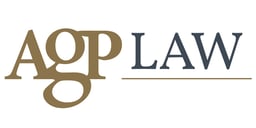SME Fund 2026: Protect your IP with EU funding
Cost barriers for trademark applications often hinder small businesses from securing intellectual property rights.
Recognising this challenge, the European Union Intellectual Property Office (EUIPO) has introduced an ambitious €60 million fund designed to assist Small and Medium-sized Enterprises (SMEs) with their IP protection efforts.
This new SME Fund 2026 aims to significantly lower the financial hurdles associated with registering trademarks and obtaining other IP protections. Building on the success of previous initiatives, the program provides extensive support for a wide range of IP activities. It not only covers trademarks but also extends to patents, designs, and plant variety rights.
The primary goal of the fund is to promote equal access to intellectual property protections throughout the European Union, empowering smaller businesses to defend their innovations and brands. Consequently, SMEs can now overcome previous financial barriers that limited their ability to secure essential IP rights in competitive markets.
Fund aims to reduce costs for trademarks, patents, and designs
The 2026 SME Fund offers financial assistance through a voucher system that significantly reduces the costs associated with various IP protections. For trademark applications and designs, businesses can receive a 75% reimbursement on fees at national, regional, and EU levels. This includes application fees, additional class fees, examination, registration, and publication costs.
Moreover, the fund covers patent applications with equally generous support. SMEs can claim 75% reimbursement on national patent applications and state-of-the-art search reports, up to €1,000. For European patents, the fund offers 75% reimbursement on filing and search fees with the European Patent Office, plus 50% on legal costs for drafting and filing applications by professional representatives, with a combined maximum of €2,500.
Additionally, the fund extends to plant variety protection, offering a 75% reimbursement on online application and examination fees before the Community Plant Variety Office, up to €1,500. For businesses seeking strategic IP guidance, the fund provides up to 90% reimbursement for IP Scan services . The voucher structure allows businesses flexibility in choosing the protections they need.
Who is eligible under the SME FUND:
Definition of SMEs under EU law
The European Union defines Small and Medium-sized Enterprises based on three main criteria: staff headcount, annual turnover, and annual balance sheet total. According to EU recommendation 2003/361, businesses must fall within these thresholds:
For classification purposes, a medium-sized enterprise employs fewer than 250 staff members, with an annual turnover not exceeding €50 million and an annual balance sheet total of up to €43 million. A small enterprise is defined as having fewer than 50 employees, with annual turnover and balance sheet totals each not exceeding €10 million, while a micro enterprise employs fewer than 10 staff members and reports annual turnover and balance sheet totals of up to €2 million.
These ceilings apply to individual firms only. However, businesses that are part of larger groups may need to include staff headcount, turnover, and balance sheet data from the entire group when determining eligibility. Consequently, enterprises cannot qualify if 25% or more of their capital or voting rights are directly or indirectly controlled by one or more public bodies.
Application Period
Opens: 2 February 2026
Closes: 5 December 2026
Protecting your intellectual property is an investment in your business’s future. Our Head of IP & Data Protection, Xenia Kasapi, is available to assist with your application and advise on how to maximise your IP protection.
About Xenia Kasapi
Xenia holds a Bachelor of Laws from The University of Sheffield and a Master of Commercial Law from the University of Bristol. She is a member of the Cyprus Bar Association and the Chartered Institute of Arbitrators, with expertise in intellectual property, data protection, and corporate law. She is also a PhD candidate at the University of Cyprus, researching intellectual property law.
E & G Economides LLC - February 10 2026







































